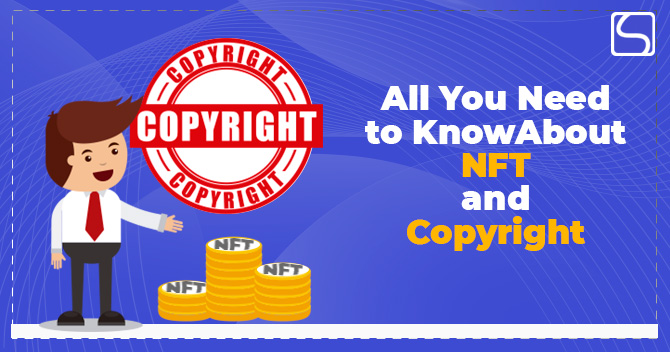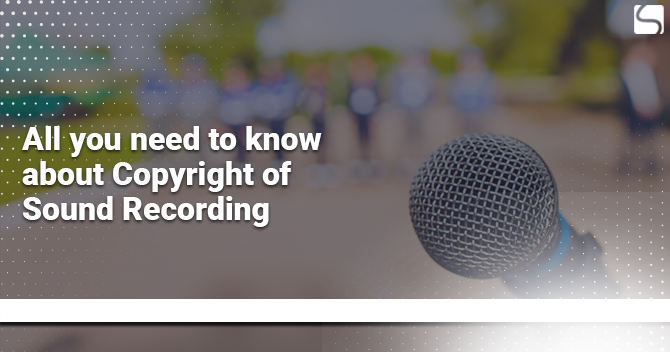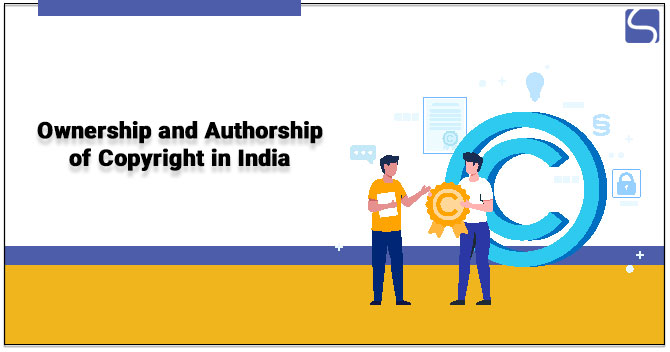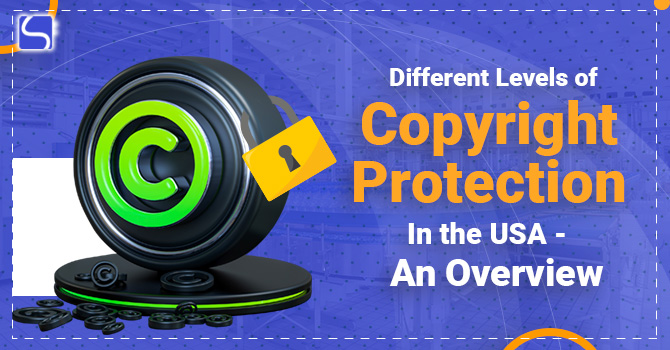All You Need to Know About NFT and Copyright

Karan Singh | Updated: Mar 02, 2022 | Category: Copyright
NFTs (Non-Fungible Tokens) are digital certificates or digital authenticity seals that grant ownership of an asset represented as an NFT verifiable through blockchain entry. This could be any digital assets or content like a tweet or any digital work like songs, music, digital art, or even other physical forms like artistic paintings. Copyright remains with the author/creator of the original work of music, art, painting, etc., unless the commercialisation of NFT comprises the transfer of property rights of the creator or author to the NFT purchaser, it being certain that the personal or moral right of the creator or author remains in the lawful sphere of the creator. Scroll down to check more information regarding NFT and Copyright.
Table of Contents
Is it possible to bring NFTs under Copyright?
Basically, Copyright is a legal term used to describe the rights that creators or authors have over their literacy & artistic works. Works covered by Copyright range from music, paintings, films, books, and sculpture to databases, maps, computer programs, ads, and technical drawings.
As we know that NFT (Non-Fungible Tokens) is a token that represents an underlying asset which should be an artistic or literary work, for it is covered under the Copyrights. Hence, one can conclude from the above statement that NFTs per se don’t come under the scope of Copyrights, but the underlying assets in the NFTs are eligible for Copyrights.
Who are the key players in the NFT domain?
- New Buyer: The buyer acquires NFT from the creator through marketplaces like OpenSea, Rarible, and the like. Hence, he or she owns the NFT, which can only have access to the underlying content but cannot own the underlying asset itself.
- Copyright Infringing Party: This party is not the actual digital content creator. But, it copies others’ digital assets[1] with new NFT and marks them up on the blockchain ledger.
- Creator: The creator of NFT of digital content or an asset should be the creator of the digital asset or content represented by such NFT. After they sell the NFT to the buyer, they are no longer the NFT owner. But they are the owners or creators of the digital content linked to the NFT.
Why do NFTs give rise to Copyright Problems? – NFT and Copyright
The NFTs only give access to digital assets, but they don’t give entire ownership of those assets simply because one owns such NFTs. However, due to the nature of digital content, it’s easy for the infringing party to copy it. This makes it easier for the infringing or violating party to take somebody else’s work and tokenise it.
What are the issues related to NFT and Copyright?
Following are some issues related to NFT and Copyright:
- Just because one owns the NFTs, it does allow them to the full ownership of the digital content or asset associated with the NFTs. They can only have access or be able to view or listen to the digital content, and this cannot be shown in public, nor can it be copied. Hence, whatever is being sold is just a digital version of the underlying asset or content and not the content or asset. Moreover, NFTs are more likely the token via which one owns the signed version of the painting picture and not the painting itself. This does not stop the painter from minting NFTs based on various pictures of that same painting.
- The NFTs’ buyers cannot sue for Copyright Infringement since they only own the NFTs and not the digital content associated with the NFTs. The selling & buying of NFTs between the owners or artists of NFT and the buyers take place through smart contracts.
How do NFT and Copyright relate to each other?
Despite these characteristics, the entities’ identity carrying out these transactions are not traceable, as it is unreasonable to recognise the ownership of an NFT. Anyone can use the copyrighted content of which they are not the owner or author; to create an NNFT unduly and market it on different platforms for this purposes, making cases of art scam in the virtual environment commonplace.
Remember that in addition of the NFT ownership doesn’t permit the owner of the product or asset linked with an NFT, as mentioned earlier, the NFT ownership doesn’t confer its owner the IP of the asset represented in the NFT that is the NFT owner doesn’t become the author of the artwork.
The NFT commercialisation is made via a smart contract that establishes all the terms concerning the use of this NFT by the purchaser or buyer, who will not be able to make uncritical use of the token in case the asset is shown in this token is safeguarded by IP such as Copyright.
However, this technology has shown itself as a new source of author’s income and creative industry players when they create or do works in the NFT format and market them in the digital environment; from the granting of licenses with the advantages of easy asset management & control over the remunerations for royalties. The benefit of this digital contract is that, as a rule, if the token is resold via a blockchain-enabled market, the royalty payment will be made automatically without the requirement for any further action by the artist.
Conclusion
After discussing NFT and Copyright, it is clear that there is a severe lack of laws governing or regulating the NFTs, especially when it comes to Copyright involved in NFTs. It is one of the big steps taken to control the financial sector in the growing digital age. It’s unsure whether it will cover the NFTs or let along with the Copyright Infringement of NFTs. There is no specific law for the NFTs globally, whereas there should be at least a global protocol or consensus to control such violations.
Read our Article:An Overview of Work in Public Domain When Copyright Expires














